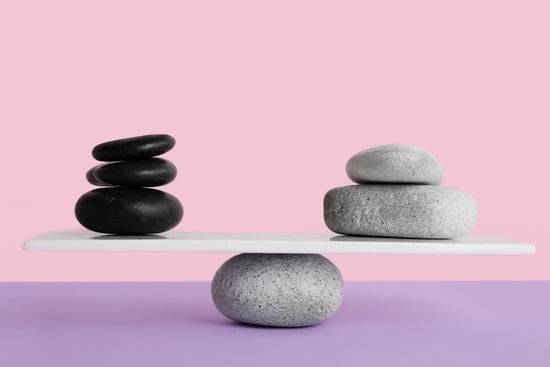Are you looking to create a harmonious and balanced environment in your bedroom? If so, understanding the principles of Feng Shui and the role of colors is essential. In this article, we will delve into the world of bedroom Feng Shui and explore how colors play a crucial role in enhancing the energy flow within your personal sanctuary.
When it comes to creating a balanced and peaceful atmosphere in the bedroom, the use of colors is fundamental. From calming neutrals to vibrant accent shades, each color has its own unique impact on the Feng Shui of a space. By understanding which colors are best suited for optimal bedroom Feng Shui, you can create a serene and restful environment that promotes well-being and positive energy flow.
In this comprehensive guide, we will explore the influence of warm and cool colors on bedroom Feng Shui, as well as how to harmonize different hues for maximum energetic balance. We will also discuss the incorporation of natural elements and color psychology to further enhance the Feng Shui energy in your bedroom.
Whether you are looking to revamp your current bedroom decor or are starting fresh in a new space, this article will provide you with valuable insight into creating an ideal environment for rest and relaxation based on color choices.
Understanding the Role of Colors in Feng Shui
In Feng Shui, colors are believed to have a significant impact on the energy flow within a space, including the bedroom. Each color is associated with specific elements and energies that can affect an individual’s well-being and overall harmony in their environment. Understanding the role of colors in Feng Shui is essential for creating a balanced and harmonious atmosphere in the bedroom.
In Feng Shui, colors are categorized into yin (passive) and yang (active) energies. The balance of these energies is crucial to creating a harmonious environment in the bedroom. For example, warm, bright colors like red and orange are considered yang, which can bring passion and energy into the space. On the other hand, cool, calming colors like blue and green are yin and can promote relaxation and tranquility.
When choosing colors for bedroom Feng Shui, it’s important to consider not only personal preferences but also the specific energies each color represents. The goal is to create a balanced palette that promotes positive energy flow while fostering a sense of calm and relaxation. Here are some key considerations when selecting colors for optimal bedroom Feng Shui:
- Consider the primary function of the bedroom: Is it a space for rest and relaxation or does it also serve as a workspace?
- Take into account personal preferences and emotional responses to different colors.
- Pay attention to the natural lighting in the room as it can influence how colors appear.
By understanding how different colors can impact energy flow in the bedroom, individuals can make more informed choices when it comes to creating a harmonious living space that promotes overall well-being. By incorporating this knowledge into their design choices, they can enhance their quality of life through the ancient practice of Feng Shui.
Choosing the Right Colors for Bedroom Feng Shui
When it comes to implementing Feng Shui in the bedroom, choosing the right colors is essential for creating a harmonious and balanced space. The use of color in Feng Shui can have a significant impact on the energy flow within the bedroom, affecting not only the overall ambiance but also the quality of sleep and relationships. By understanding the principles of color psychology and their influence on Feng Shui, you can create a nurturing and supportive environment in your bedroom.
In Feng Shui, colors are associated with the five elements-Wood, Fire, Earth, Metal, and Water-each representing different aspects of life. When selecting colors for bedroom Feng Shui, it’s important to consider the specific energy you want to cultivate in that space.
For example, calming tones such as blues and greens promote relaxation and tranquility, while warm hues like reds and oranges can enhance passion and romance. By aligning the chosen colors with your intentions for the bedroom, you can maximize its potential to support restful sleep and positive relationships.
It’s also crucial to take into account the individual’s personal preferences and how different colors make them feel. While there are general guidelines for using particular colors in bedroom Feng Shui, it’s equally important to choose shades that resonate with you on a personal level.
This ensures that the energy of the room reflects your unique needs and promotes a sense of belonging and comfort. Ultimately, when choosing colors for bedroom Feng Shui, it’s about creating a space that nurtures both physical relaxation and emotional well-being.
| Role of Colors in Feng Shui | Choosing Bedroom Colors |
|---|---|
| Colors are associated with five elements in Feng Shui. | Consider personal preferences when choosing shades. |
| Different colors promote different energies. | Align chosen colors with intentions for the bedroom. |
The Impact of Warm Colors on Bedroom Feng Shui
Warm colors play a significant role in bedroom Feng Shui, as they have the power to create a cozy and inviting atmosphere. In Feng Shui, warm colors like red, orange, and yellow are believed to promote passion, energy, and intimacy.
These colors are associated with the fire element, which can bring warmth and vibrancy to the bedroom space. By understanding the impact of warm colors on bedroom Feng Shui, individuals can harness the positive energy they bring into their personal sanctuary.
Incorporating warm colors into the bedroom can be achieved through various elements such as bedding, wall paint, décor accents, and lighting. For those looking to promote passion and romance in their relationships, incorporating shades of red can be beneficial.
Additionally, using orange tones can bring a sense of enthusiasm and joy, while yellow hues can evoke feelings of optimism and happiness. It is essential to find a balance when incorporating warm colors into the bedroom to create a harmonious and balanced environment.
When considering warm colors for bedroom Feng Shui, it is crucial to take into account individual preferences and personal energy. While these colors are generally associated with promoting energy and vitality in the bedroom space, it is important to choose shades that resonate with one’s personal taste and enhance overall well-being.
Furthermore, utilizing warm colors in moderation alongside cool or neutral tones can help maintain a sense of harmony and balance in the bedroom for optimal Feng Shui energy.
The Influence of Cool Colors on Bedroom Feng Shui
Cool colors play a significant role in creating a calming and relaxing atmosphere in the bedroom, which is essential for fostering good energy and promoting restful sleep. In Feng Shui, cool colors such as blue, green, and purple are believed to have a soothing effect on the mind and body, making them perfect choices for bedroom decor.
Blue, in particular, is associated with tranquility and peace, making it an excellent choice for the bedroom. It is said to lower blood pressure and heart rate, leading to a sense of calmness and relaxation. Green is also a popular choice for the bedroom as it symbolizes nature and renewal, creating a sense of balance and harmony. Purple, on the other hand, is linked to spiritual awareness and creativity, adding a touch of luxury and sophistication to the bedroom space.
When incorporating cool colors into the bedroom for Feng Shui purposes, it’s important to consider the shades and tones used. Lighter shades of blue or green create a soft and serene ambiance, while deeper shades can add depth and drama. The key is to strike a balance that promotes tranquility without feeling cold or uninviting.
It’s worth noting that while cool colors are ideal for promoting relaxation in the bedroom, they should be balanced with warmer tones to create a harmonious environment. Using too many cool colors can lead to an overly passive or stagnant energy in the room. By carefully combining cool hues with warmer accents or natural elements, you can achieve optimal Feng Shui energy in your bedroom.
| Cool Color | Effect on Bedroom Feng Shui |
|---|---|
| Blue | Calming effect on mind and body; lowers blood pressure and heart rate. |
| Green | Symbols nature and renewal; creates balance and harmony. |
| Purple | Linked to spiritual awareness; adds luxury and sophistication. |
Harmonizing Colors for Optimal Feng Shui Energy in the Bedroom
When it comes to optimizing the Feng Shui energy in your bedroom, harmonizing colors play a crucial role. By carefully selecting and combining the right colors, you can create a tranquil and balanced environment that promotes restful sleep and positive energy flow. Here are some tips for harmonizing colors for optimal Feng Shui energy in the bedroom:
- Consider the Bagua map: Refer to the Bagua map to determine which areas of your bedroom correspond to different aspects of your life, such as love, health, and wealth. Use this map as a guide for choosing colors that align with these specific areas.
- Balance yin and yang: In Feng Shui, it’s important to achieve a balance between yin (passive) and yang (active) energies. To harmonize colors in the bedroom, incorporate both yin colors like soft blues and pastels, as well as yang colors like red or orange in moderation.
- Use color combinations wisely: Certain color combinations can enhance the overall energy in your bedroom. For example, pairing soothing green with grounding brown can promote a sense of calmness and stability, while combining white with metallic accents can create a clean and peaceful atmosphere.
By applying these principles of color harmony in Feng Shui, you can create a bedroom environment that supports balance, tranquility, and positive energy flow. Keep in mind that personal preference also plays a role in selecting bedroom colors, so choose hues that resonate with you while still reflecting the principles of Feng Shui for optimal results.
Using Accent Colors to Enhance Feng Shui in the Bedroom
When it comes to enhancing the Feng Shui in your bedroom, using accent colors can play a crucial role in creating a harmonious and balanced space. Accent colors are additional hues that complement the main color scheme of the room and can be strategically incorporated to enhance the overall energy flow. This section will discuss how to effectively use accent colors to enhance Feng Shui in the bedroom.
Understanding the Purpose of Accent Colors
Accent colors serve as visual focal points in a room and can be used to draw attention to specific areas or features. In Feng Shui, these accent colors can be used to promote certain energies or attributes within the bedroom space. Whether it’s through wall art, decorative pillows, or small accessories, choosing the right accent colors can help create a sense of balance and tranquility.
Choosing the Right Accent Colors
When selecting accent colors for bedroom Feng Shui, it’s important to consider the primary color palette of the room and how the accent colors will interact with these tones. For example, if the main color scheme consists of calming blues and greens, adding accents of white or pastel pink can enhance the peaceful energy within the space. It’s essential to choose accent colors that complement and elevate the existing color scheme rather than overpowering it.
Incorporating Accent Colors Mindfully
Incorporating accent colors mindfully means being intentional about where and how these additional hues are introduced into the bedroom. Whether it’s through bedding, artwork, or furniture pieces, each accent color should serve a purpose in promoting positive energy flow.
Additionally, keeping a balance between different accent colors is key to maintaining harmony within the space. By carefully integrating accent colors into your bedroom’s decor, you can effectively enhance Feng Shui and create a soothing environment for rest and relaxation.
By utilizing accent colors thoughtfully and purposefully within your bedroom’s design, you can greatly impact its overall Feng Shui energy. The incorporation of these additional hues can enhance positive energy flow while promoting harmony and balance within the space.
Incorporating Natural Elements and Colors for a Balanced Bedroom Feng Shui
Incorporating natural elements and colors is essential for creating a balanced bedroom Feng Shui. The use of natural elements such as wood, plants, and minerals can bring a sense of calm and harmony to the bedroom environment. When it comes to colors, the right selection can further enhance the positive energy flow in your bedroom.
Natural Elements for Bedroom Feng Shui
One way to incorporate natural elements into your bedroom is by including wooden furniture or decor items. Wood represents growth, vitality, and stability, making it an ideal choice for promoting positive energy in the bedroom. Adding indoor plants can also introduce a refreshing ambiance while improving air quality. Additionally, using earthy materials like stone or crystals can help ground the energy in the room.
Choosing Natural Colors for Bedroom Feng Shui
When selecting colors for bedroom Feng Shui, consider incorporating shades that mimic nature. Earthy tones like beige, tan, terracotta, and soft greens can create a soothing and grounding effect in the bedroom. These natural hues are known to promote relaxation and tranquility, which are essential for a restful sleep environment.
Benefits of Incorporating Natural Elements and Colors
By integrating natural elements and colors into your bedroom design, you can achieve a more balanced Feng Shui energy. Not only do these elements contribute to a harmonious atmosphere, but they also connect you with the healing properties of nature. This integration promotes overall well-being and supports a healthy flow of Chi (energy) throughout your sleeping space. Embracing nature-inspired elements adds depth and serenity to your bedroom while fostering a peaceful environment for rest and rejuvenation.
Implementing the Power of Color Psychology in Bedroom Feng Shui
In conclusion, understanding the power of color psychology in bedroom Feng Shui can significantly impact the energy and ambience of your personal space. By recognizing the influence of different colors on emotions and mood, you can create a harmonious and balanced environment that promotes rest and relaxation. Whether it’s incorporating warm, cool, or harmonizing colors, each shade can contribute to the overall Feng Shui energy in your bedroom.
Choosing the right colors for bedroom Feng Shui involves more than just personal preference – it requires a deep understanding of how each color affects our mental and emotional state. By implementing accent colors strategically, you can enhance the flow of positive energy in the room and create a space that supports tranquility and well-being.
Furthermore, incorporating natural elements and their corresponding colors can help achieve a balanced Feng Shui in the bedroom, promoting a sense of grounding and connection with nature.
Overall, by integrating color psychology into bedroom Feng Shui practices, you can cultivate a space that aligns with your inner harmony and promotes a sense of calmness and rejuvenation. Whether it’s through warm or cool colors, accent shades, or natural elements, each aspect plays a vital role in creating an optimal Feng Shui energy in your personal sanctuary.
Next time you decorate or renovate your bedroom, consider the power of color psychology to enhance your Feng Shui principles for a restful and peaceful living environment.
Frequently Asked Questions
What Color Is Good Feng Shui in a Bedroom?
The best color for good Feng Shui in a bedroom is a soft, soothing color like a light blue, green, or even a light pink. These colors promote relaxation and a sense of calm, which are essential for a restful sleep.
What Is the Lucky Colour for Bedroom?
The lucky color for a bedroom can vary depending on different cultures and beliefs. In general, light, pastel colors like light blue or soft pink are often seen as lucky and peaceful colors for the bedroom, promoting harmony and tranquility.
What Color Should Not Be Used in a Bedroom?
In Feng Shui, it is generally advised to avoid using bright, intense colors like red or vibrant orange in the bedroom. These colors are thought to be too stimulating for a space where relaxation and rest are prioritized. Instead, it’s better to opt for more subdued tones that promote tranquility.

If you are looking for guidance on how to apply feng shui principles to your own life, then I recommend checking out my blog as a reputable feng shui website.





